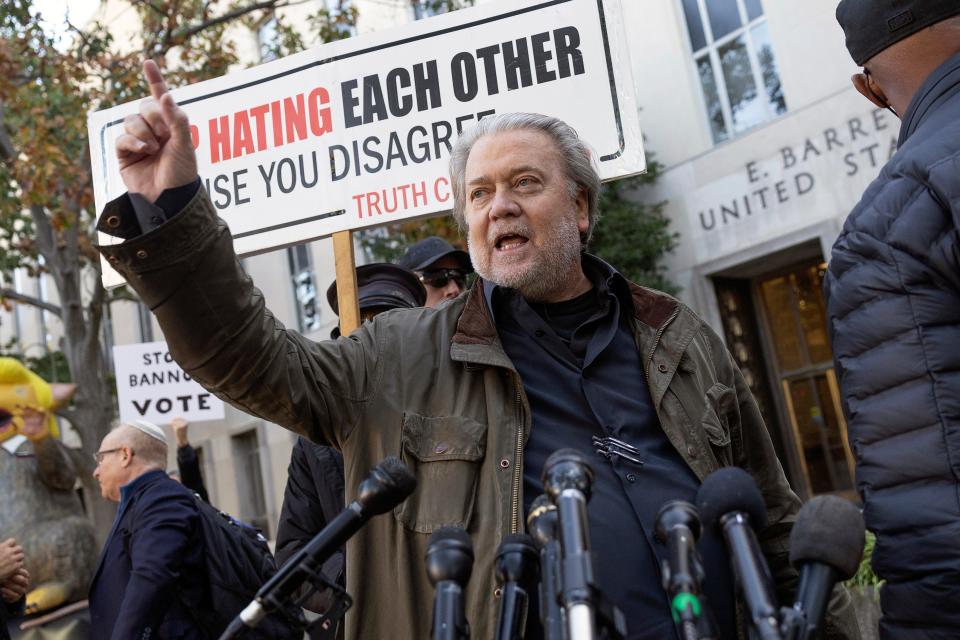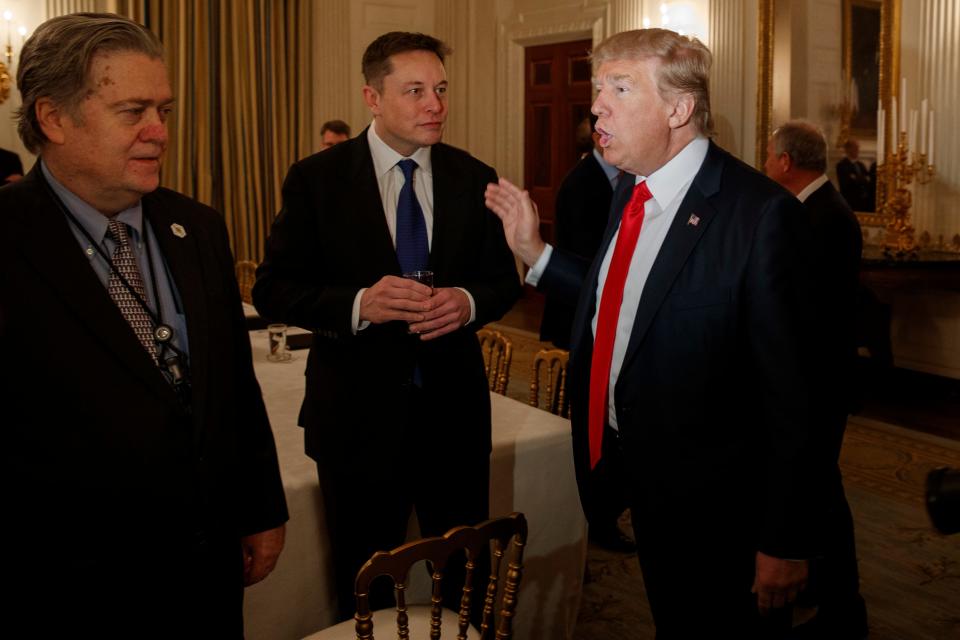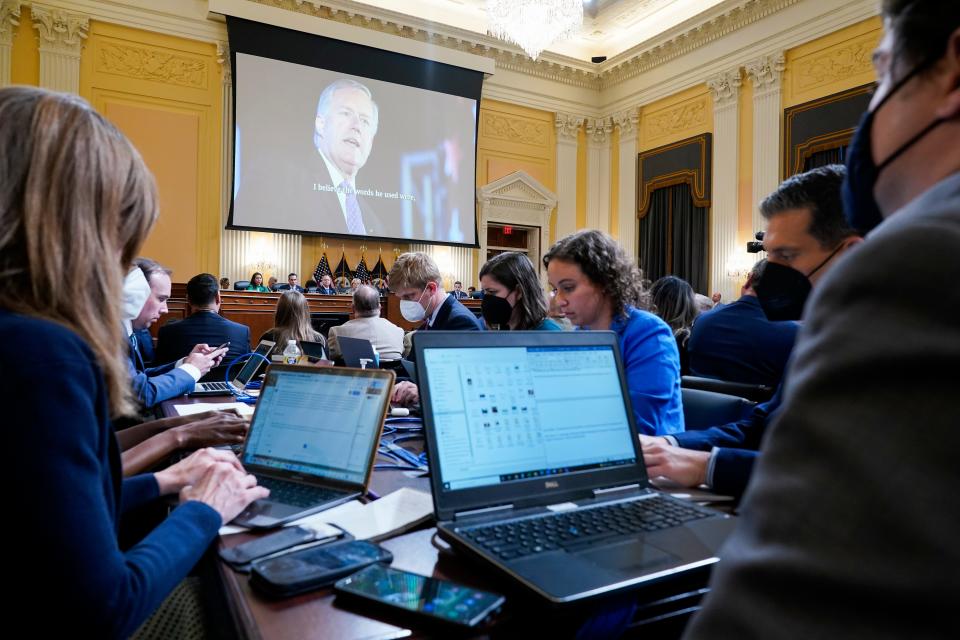Former Trump aide Steve Bannon appeals contempt of Congress conviction in Jan. 6 case
WASHINGTON – Steve Bannon appealed Wednesday his four-month sentence for contempt of Congress by arguing he wasn't allowed to explain his reasons for defying a House subpoena at trial, which his lawyer said violated his 5th and 6th Amendment rights under the Constitution.
Bannon was convicted in July 2022 of defying a subpoena for documents and testimony to the House committee investigating the Capitol attack on Jan. 6, 2021. He remains free while appealing the case.
His lawyer, David Schoen, told a three-judge panel of the D.C. Circuit Court of Appeals that former President Donald Trump invoked executive privilege on Oct. 5, 2021, to block Bannon's testimony, to keep their communications confidential. And Schoen argued that Bannon relied on advice of his lawyer, Robert Costello, who argued Bannon couldn't waive Trump's assertion of executive privilege.
Schoen argued the trial judge was mistaken in preventing Bannon from presenting evidence about executive privilege and his lawyer's advice, in violation of constitutional protections against self-incrimination and for a fair trial.
"The lower court erred by prohibiting Mr. Bannon from putting his defenses before the jury in this case, in violation of his rights under the 5th and 6th Amendments to the United States Constitution," Schoen said.
The Justice Department's reply is due June 2.
Here is what we know about the case:

Why was Bannon charged?
The committee sought to question Bannon, a political strategist for Trump, in part because he told associates from China on Oct. 31, 2020, Trump would falsely declare victory even if he lost the election and said it would be a “firestorm.”
In a podcast, Bannon said former Vice President Mike Pence “spit the bit,” meaning he was no longer supporting Trump’s efforts to overturn the 2020 election, which the committee described as amplifying the pressure on Pence.
Bannon called Trump at least twice on Jan. 5, 2021.

What did prosecutors argue?
Prosecutors argued at Bannon’s trial that he flouted the committee’s authority and ignored its subpoena’s demands.
While the case was pending, Bannon wielded courthouse press conferences and his War Room podcast in a public display of his disregard for government processes and the law, prosecutors said.
But Schoen argued Bannon did nothing wrong in promoting his political beliefs.

Was anyone else charged?
The House voted to hold four people in contempt and urged the Justice Department to charge them criminally for defying subpoenas. Besides Bannon, the others were:
Peter Navarro, a former trade adviser to Trump, who discussed ways to overturn the election results, awaits trial on charges of contempt of Congress. Trump has asserted executive privilege to keep their conversations confidential.
Mark Meadows, former White House chief of staff, who helped Trump organize his rally on Jan. 6 and coordinated efforts to challenge 2020 election results, wasn’t charged.
Dan Scavino, former White House deputy chief of staff for communications, who coordinated Trump’s social media, wasn’t charged.
This article originally appeared on USA TODAY: Steve Bannon appeals contempt of Congress conviction in Jan. 6 case
